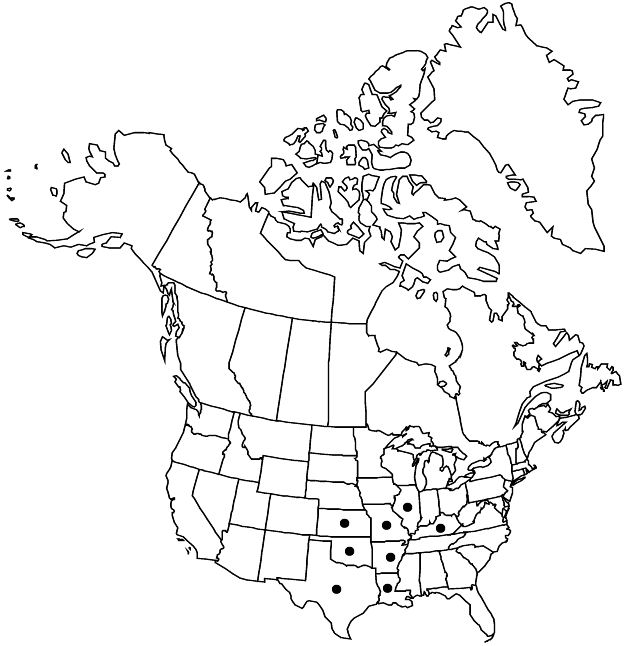Acalypha monococca
Sida 13: 123. 1988.
Herbs, annual, 1–4 dm, monoecious. Stems erect, pubescent. Leaves: petiole 0.2–1(–1.2) cm; blade linear-lanceolate to linear, 1.7–6(–7) × 0.3–1.2 cm, base cuneate, margins usually subentire, sometimes shallowly serrate, apex acute. Inflorescences bisexual, axillary; peduncle 0.1–0.6 cm, pistillate portion 0.6–1.2 × 0.8–1.5 cm or pistillate bract solitary, staminate portion 0.1–2.5 cm; allomorphic pistillate flowers absent. Pistillate bracts loosely arranged to crowded (inflorescence axis clearly to scarcely visible between bracts) or solitary, 8–13 × 11–16 mm, abaxial surface sparsely to densely pubescent, red sessile-glandular, and rarely stipitate-glandular; lobes (7–)9–13(–17), deltate, 1/10–1/4 bract length. Pistillate flowers: pistil 1-carpellate; styles multifid or laciniate. Capsules smooth, pubescent. Seeds 1.6–2.4 mm, shallowly pitted.
Phenology: Flowering and fruiting summer–fall.
Habitat: Pine and oak woods, prairies, barrens, on sandy or shallow rocky soils.
Elevation: 80–600 m.
Distribution

Ark., Ill., Kans., Ky., La., Mo., Okla., Tex.
Discussion
Even when fruits have dehisced, Acalypha monococca is easily distinguished from A. gracilens and all other species in the genus by its curved, needlelike columellae.
Selected References
None.